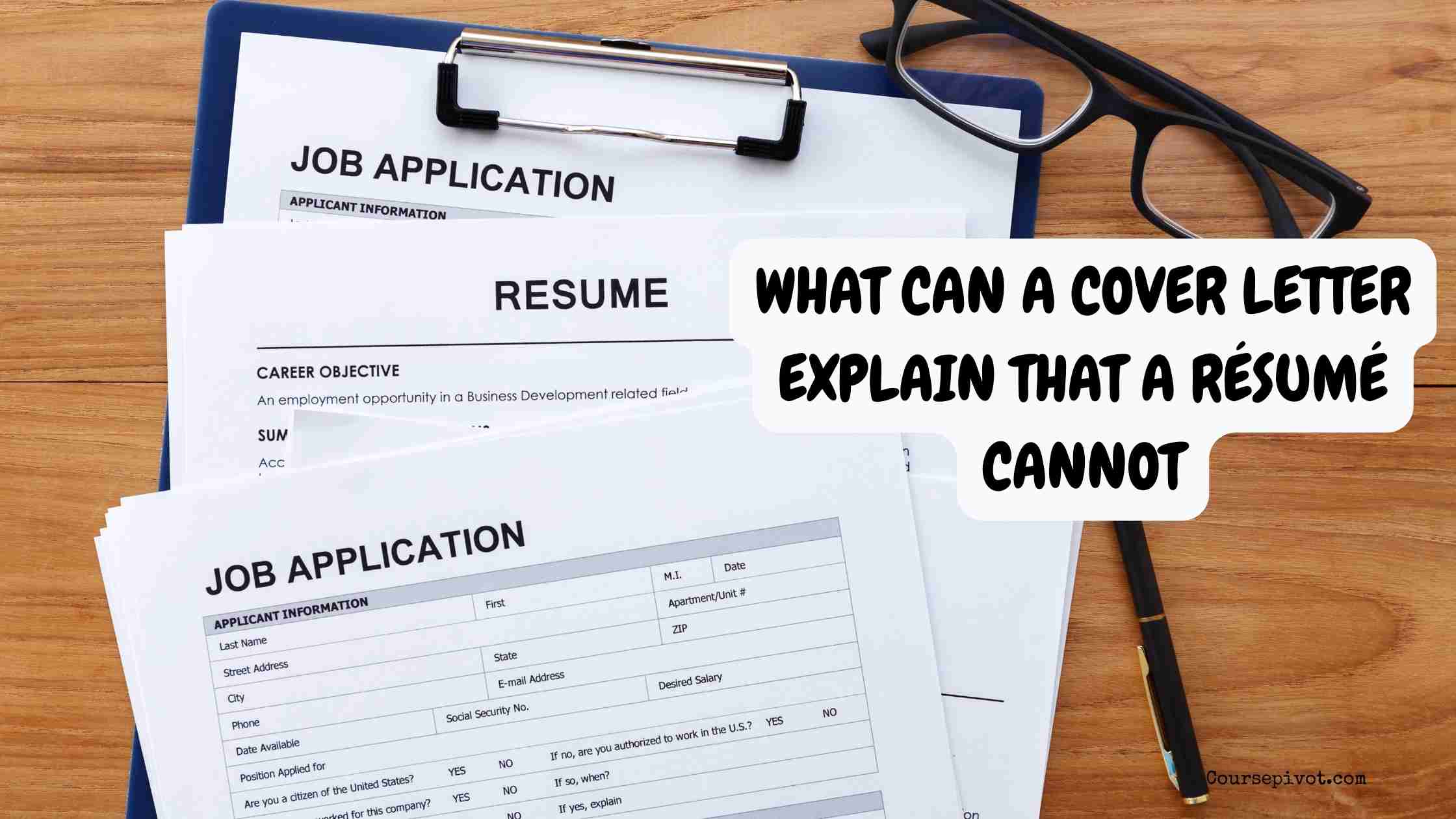
What Can a Cover Letter Explain That a Résumé Cannot
When applying for a job, both your résumé and cover letter play crucial roles. But they serve different purposes, and each communicates different things about you. I’ve noticed that while a résumé lists facts, a cover letter tells a story — and that story can explain a lot that the résumé simply can’t.
Résumé vs. Cover Letter: The Basics
- Résumé: A concise, factual summary of your skills, work history, education, and accomplishments. It’s often formatted in bullet points and focuses on what you’ve done.
- Cover Letter: A personalized letter that introduces you to the employer, explains why you’re interested in the role, and highlights how your experiences make you a perfect fit.
What a Cover Letter Explains That a Résumé Cannot
1. Your Motivation and Passion
Your résumé shows where you worked and what you did, but it doesn’t convey your enthusiasm for the job or the company. A cover letter lets you explain why you want this specific role. For example, you can share what excites you about the company’s mission or culture.
- Read our blog on Top 10 Reasons for Leaving a Job Sample
2. Your Personality and Communication Style
A résumé is formal and structured, so it doesn’t reveal much about who you are as a person. The cover letter gives you a chance to show your voice, professionalism, and interpersonal skills — all important traits that help employers imagine working with you.
3. Context for Career Changes or Gaps
If you have gaps in employment, are switching industries, or changing career paths, your résumé alone doesn’t explain why. Your cover letter can provide that context clearly and positively. You can describe how your past experiences prepare you for this new direction or explain life circumstances briefly.
4. How You Solve Problems or Overcome Challenges
Résumés typically list achievements but don’t detail the stories behind them. In your cover letter, you can highlight specific challenges you faced and how you overcame them, demonstrating your problem-solving skills and resilience.
5. Tailoring Your Fit to the Job
While your résumé may be fairly standard, the cover letter allows you to directly address the job description and explain how your skills and experience align perfectly with the company’s needs. It shows that you’ve done your homework and are genuinely interested.
6. Addressing Special Circumstances
Sometimes, you might need to mention unique situations, like relocation, availability, or willingness to travel. These details don’t belong in a résumé but fit well in a cover letter.
Why This Matters
Employers often read cover letters to understand who you are beyond the bullet points. It’s your chance to make a personal connection and stand out. The cover letter explains the story behind the résumé, making your application more memorable.
- Read our blog on Four Reasons Why You Might Be Rejected for a Job Offer
Finally
A résumé tells the what — your skills, experiences, and accomplishments.
A cover letter explains the why and how — your motivation, personality, context, and fit for the role.
| Aspect | Cover Letter | Résumé |
|---|---|---|
| Purpose | Introduces you, explains your motivation, and personalizes your application | Summarizes your skills, experience, and education |
| Content Style | Narrative, conversational, personalized | Factual, concise, bullet-point format |
| Focus | Why you want the job and why you’re a good fit | What you have done and your qualifications |
| Length | Usually 1 page | Typically 1-2 pages |
| Tone | More personal and engaging | Formal and professional |
| Details Included | Explains career changes, gaps, and special circumstances | Lists work history, skills, education, and achievements |
| Use of Keywords | Tailored to the specific job and company | Includes relevant keywords but more general |
| Shows Personality | Yes, through writing style and examples | Limited, mostly through achievements |
| Addresses Employer | Directly addresses the hiring manager or company | No direct address, more general |
| Explains Motivation | Yes, clearly explains interest in role and company | No, motivation is not shown |
| Context for Experience | Provides background or stories behind résumé entries | Presents facts without explanation |
Together, they give a complete picture.
But if you want to truly connect with a hiring manager, the cover letter is where you share what your résumé simply cannot.
Cite this article
You can copy and paste your preferred citation format below.
Martin, L. & Arquette, E.. (2025, May 26). What Can a Cover Letter Explain That a Résumé Cannot. Coursepivot.com. https://coursepivot.com/blog/what-can-a-cover-letter-explain-that-a-resume-cannot/



